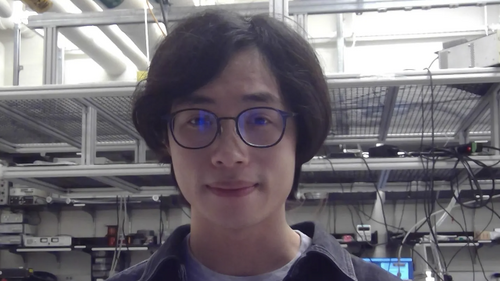
Tseng will continue to work with Wright Lab’s David Moore, associate professor of physics and Thomas Penny, postdoctoral associate; and collaborate with scientists at Lawrence Berkeley National Laboratory, including Daniel Carney, staff scientist on the project.
Tseng said, “I am honored to receive the GIRA award and I look forward to building the experiment. I would like to thank all the members in the Moore group and our collaborators at LBNL for their support.”
GIRA has been established by the Coordination Panel for Advanced Detectors (CPAD), a standing committee of The Division of Particles and Fields (DPF) of the American Physical Society (APS), for graduate students to conduct research on high energy physics instrumentation at a U.S university or national laboratory. According to the CPAD website:
“The GIRA program aims to encourage and facilitate greater involvement of physics graduate students in significant instrumentation development, to boost recognition of instrumentation work as a vital part of Ph.D. training, to foster the growth of future HEP instrumentation experts in the US, and to strengthen university-lab ties on instrumentation development.”